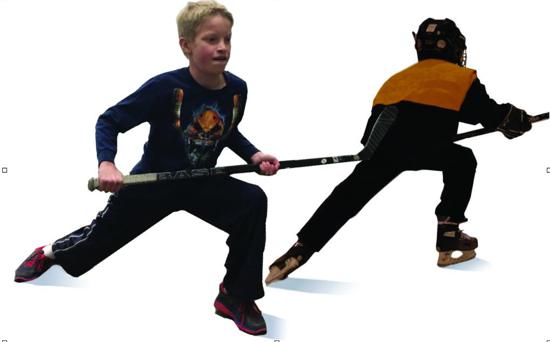STRENGHT TRAINING FOR YOUNG PLAYERS
bukač hockey
Beginners will form good skating habits early if they’ve rehearsed those
habits off-ice. Is this called “strength training,” or is it simply confidence
gained in an unfamiliar position? I wonder if there’s a difference.
Strength training is much more than building big muscles – something a 5-year-old body cannot do. Before puberty, strength training is all about changes to the nervous system – and confidence, of course. Even after puberty, adaptations to strength training depend on the way nerves recruit muscles and coordinates them with other parts of the body.
If a two-legged squat or one-legged lunge position is unfamiliar and uncomfortable to beginning skaters, they will simply run on the ice without bending and extending their knees. So, it’s worthwhile to spend 5-10 minutes after each game or practice building habits that promote good skating posture and leg strength. Don’t call it a workout. It’s “SKATING PRACTICE.”
Improvements in nerve-muscle strength can actually be “seen” as changes in the brain and spinal cord through modern MRI scanning technology. MRI’s would also show the changes to nerves from “bad” skating fundamentals if they are repeated often enough. Therefore, off-ice skating practices should start at a very young age – as soon as coaches find ways to make it FUN.
The photo shows the basic skating position that distinguishes an efficient skater from a beginner who runs on the ice. The walking lunges (pictured) are done while stepping forward and to the side at 45 degrees. Two-legged squats and jumps are also valuable, emphasizing knee bend (to a “skater’s depth” where the upper and lower leg bones are at 90 degrees). Step-ups are safe and productive if the bench is not quite as high as the knee – and the descent is slow and controlled to a count of “four.”
Because speed and quickness should be trained at EVERY age, short sprint races (even as short as five steps) should also be part of the fun. So there is plenty of opportunity for variety in these sessions. Be creative. Help young skaters get started with good habits that will define their skating stride for a lifetime.

Publikováno:




